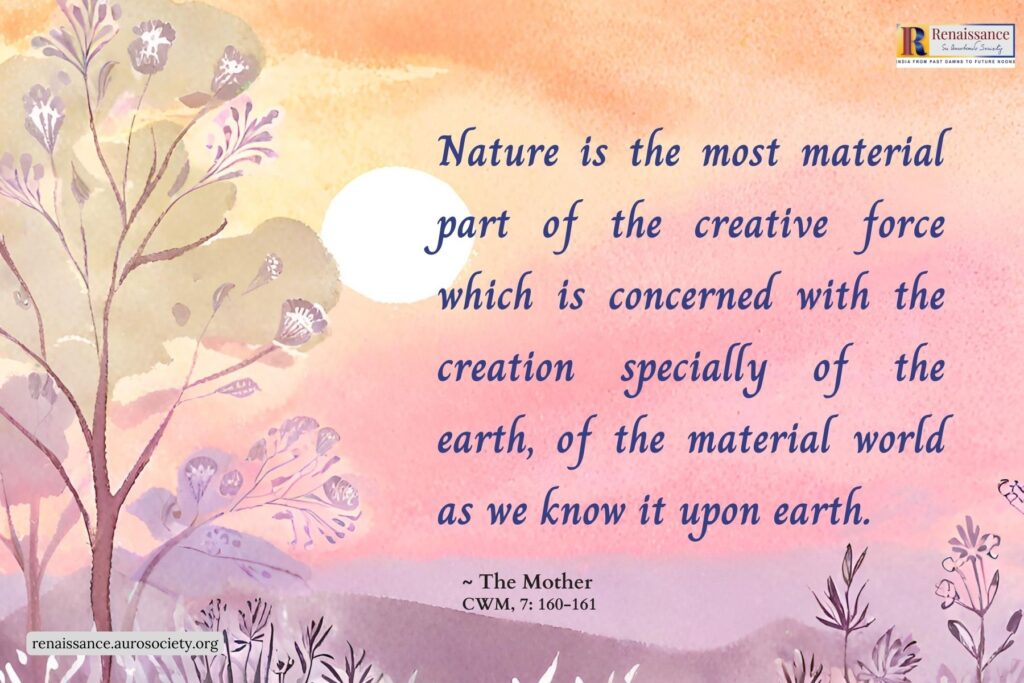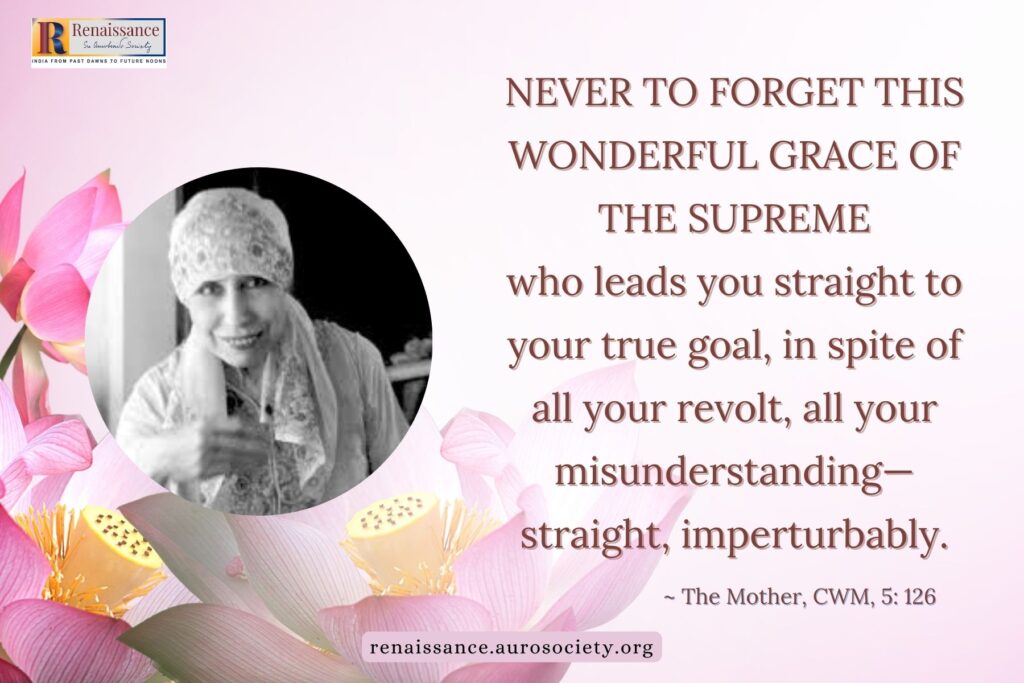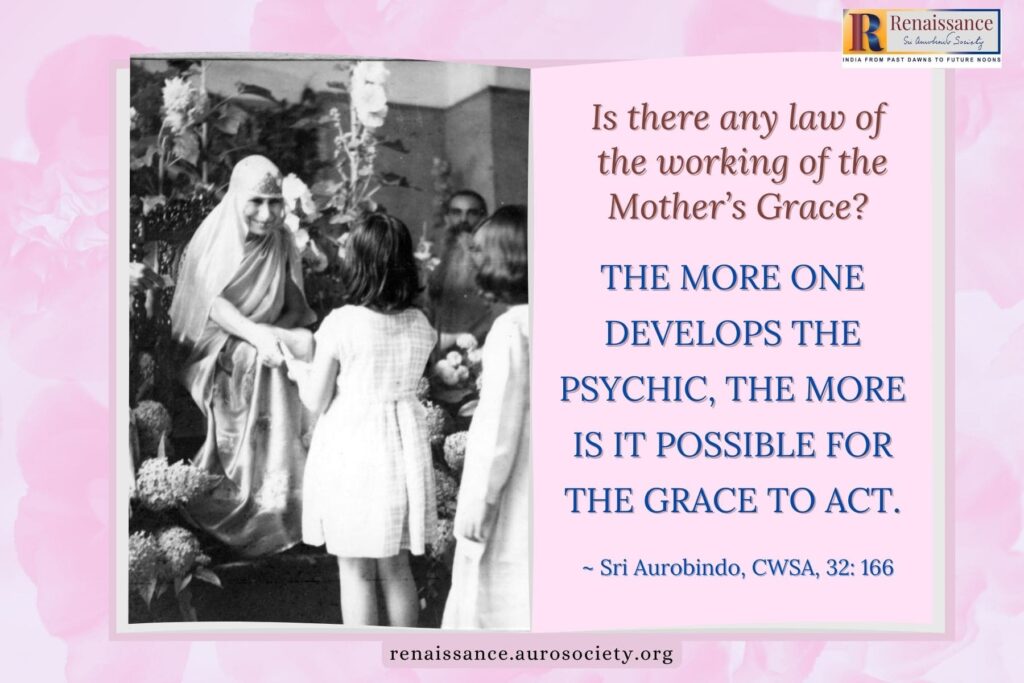Editor’s note: Last month in our Goodness issue, we published the Mother’s talk on the meaning of true and sublime charity. This short essay by Nolini Kanta Gupta serves as another wonderful reminder of what is true charity. It is published in Volume 3 of Collected Works of Nolini Kanta Gupta, pp. 187-189.

Charity is commonly understood to consist in rendering material help to your fellow men, giving alms to the poor, medicine to the sick, money or material to those who need them and physical service also where that is required.
All this is well and good. The world is ridden with diseases and privations and calamities. And if something is done to alleviate them, it is as it should be, activities in that direction deserve full encouragement.
But this does not go far enough, does not touch the root of the matter. It is the human way of dealing with things and must naturally be very limited in its scope and efficacy.
There is a higher, a diviner way – the way of the Spirit – for the cure of earthly ills, cure and not mere alleviation. That was the secret inspiration behind the message of the Christ and the Buddha.
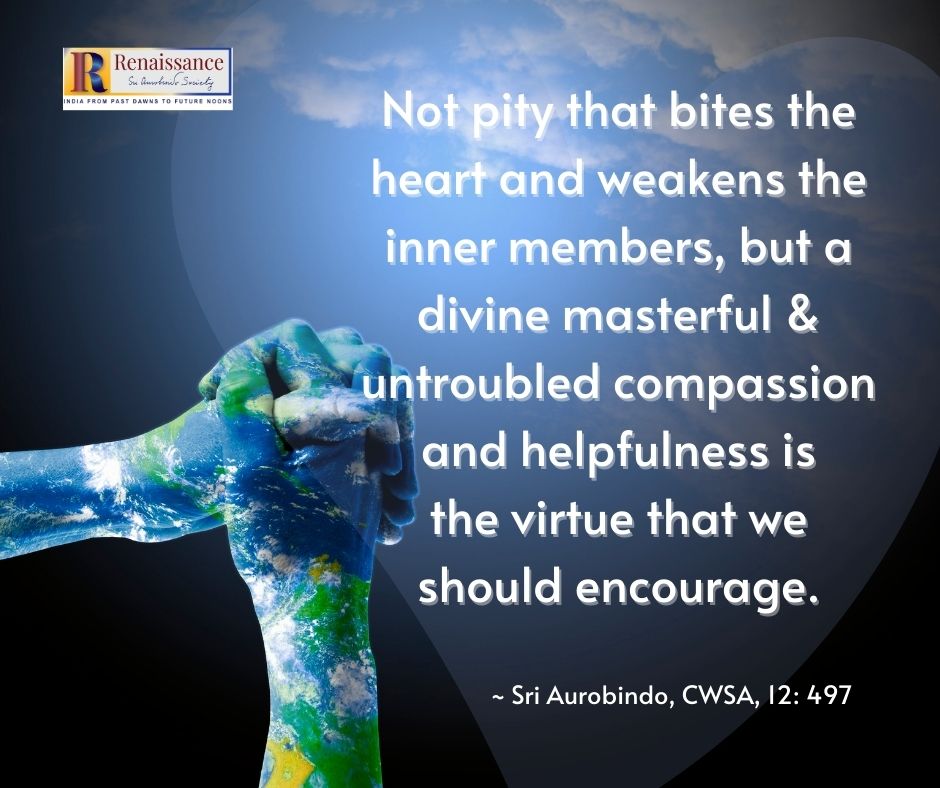
Also read:
Service to Humanity or an Ambition to be a Great Man among Men
It is not true that when one’s wants are met, one always becomes or remains happy; all paupers are not unhappy, nor are the affluent invariably happy. Happiness is a quality that depends upon something else and comes from elsewhere: it is not directly proportional to material well-being.
Unhappiness too is a psychological entity and consists in a special vibration of mind and vitality – and consequently of the physical being – due to a warp in the consciousness itself, in the core of the inner personality. The material conditions serve only to manifest it, maintain or aggravate it, but do not create it – truly they are created by it.
That is why the spiritual healers always refer to the bliss of the Spirit as the sole remedy for physical ills even, for disease, misery and death. And the unhappy mortals are always called to turn to the Divine alone in their distress – bhajasva mam.
True charity consists in laying the healing balm upon the sore that lies hidden behind all external miseries which derive from that source and sustainer.
And it is in the sole possession of him alone who has found the bliss of the Spirit and dwells in it always. Such a person does not require external accessories for his work of healing and comforting. He need do nothing apparently; he may even appear to be aloof and indifferent. But his presence itself is a healing power: the patient feels it and wonders at the ease and happiness that come into him as if from nowhere.
Many physicians have this kind of healing power; indeed without that, a mere medical man, with his pharmacopoeia, is no physician. It may not be well known and recognised, but it is a fact that a good part of the efficacy of medicines lies in the subtle influence, the vital health, that the doctor puts into his medicine or even directly into the body of his patient.
And in the case of a spiritual Bhishak, the power can be raised to the nth degree. The healer need not even be present at all physically near the patient; his influence can act very well from any distance.
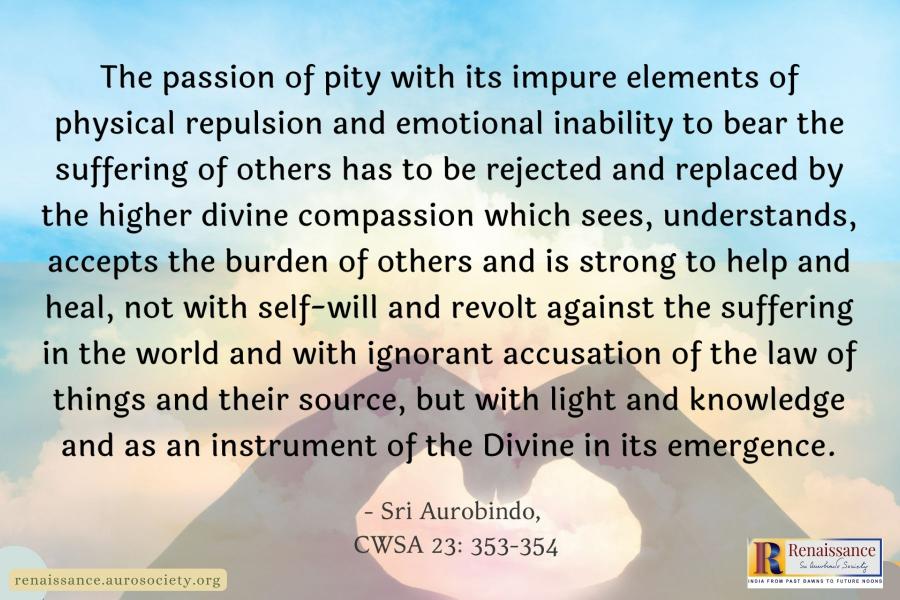
Have you read?
Sri Aurobindo’s and the Mother’s Force for Healing
It is quite natural and inevitable that it should be so. For the healing power is in the spiritual consciousness, the inalienable bliss of one’s status in the Spirit. One becomes identified with each and every object – person or thing – in one’s own self, in the true being and substance; and the light and happiness that one possesses there inalienably go out in a spontaneous flow to others who are not really others but integral parts and portions of the same self.
This condition is attained, fully and sovereignly, when there is absolute egolessness, when there is no consciousness of a separate person, the dual consciousness of the helper and the helped, the reformer and the reformed, the doctor and the patient.
The normal human sense of values is based upon such a division, upon egohood, mamatvam. A philanthropic man helps others through a sense of sympathy giving rise to a sense of duty and obligation.
This feeling of pity, of commiseration is dangerous, for it puts you in a frame of mind that tends to make you look down upon, take a superior air towards your object of pity. You become self-conscious, with the consciousness of your inferior self, that you are helping others, doing good to the world, doing something that raises your value: this sense of personal merit is only another name for vanity.
Vanity and ambition are the motive powers that lie behind the philanthropical spirit born of sympathy.
To denote a shade of meaning different from what is usually conveyed by the word “sympathy”, modern psychology has found another word – “empathy”.
Sympathy may be said to be the relation or contact between two egos; it is a link or bridge between two separate and independent entities; empathy, on the other hand, means the entering into the very being and consciousness of another, becoming that other one; it is identification and identity. This again is what spiritual consciousness alone can do.
Sympathy leads to philanthropy, empathy is the origin of true charity, the spiritual compassion of a Buddha or a Christ. Philanthropy is human, charity (caritas) is divine.

~ Design: Beloo Mehra

